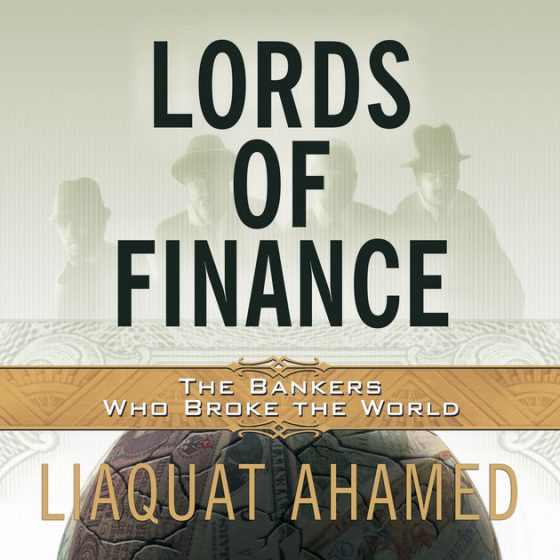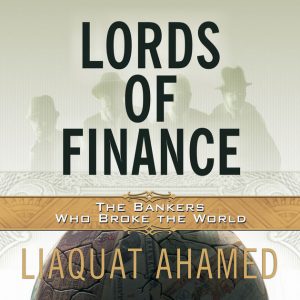

I shuddered when I read this quotation in “Lords of Finance,” a magisterial work by Liaquat Ahamed, a veteran hedge fund manager and Brookings Institution trustee. Thirteen months had passed since the crash of 1929 the world was living, in Keynes’s words, in “the shadow of one of the greatest economic catastrophes of modern history.” So wrote the great economic iconoclast John Maynard Keynes in an essay titled “The Great Slump of 1930,” published in December of that year. It is a fascinating and insightful account of the events and individuals that led to one of the most significant economic crises of the modern era.“We have involved ourselves in a colossal muddle, having blundered in the control of a delicate machine, the working of which we do not understand.” Overall, “Lords of Finance” is a must-read for anyone interested in the history of economics and finance, or anyone seeking to understand the impact of global economic policies on the world today. The book provides an intriguing look into the politics of economics, and how those in power can shape the fate of nations and the world as a whole. Ahamed explores how their beliefs and ideologies influenced their decisions, and how they struggled to balance their duty to their respective countries with the needs of the global economy. Through “Lords of Finance”, readers gain insight into the personalities and motivations of the central bankers who played a crucial role in shaping the economic landscape of the time. Ahamed skillfully weaves together historical facts and personal anecdotes to provide a clear and compelling picture of the economic crisis of the 20th century. He delves into the complex interplay between the policies of different countries, the actions of the central bankers, and the influence of powerful individuals and organizations.

The book highlights how their actions and decisions shaped the global economy during the 1920s and ultimately led to the economic collapse of the 1930s.Īhamed’s book provides an engaging and informative narrative that explores the economic, political, and social factors that led to the Great Depression.

The four central bankers are Montagu Norman of the Bank of England, Émile Moreau of the Banque de France, Hjalmar Schacht of the Reichsbank, and Benjamin Strong of the Federal Reserve Bank of New York. It tells the story of four central bankers, who came from different countries and economic systems, and were faced with the task of rebuilding the global financial system after World War I. “Lords of Finance” is a non-fiction book written by Liaquat Ahamed that explores the causes and impact of the Great Depression.


 0 kommentar(er)
0 kommentar(er)
